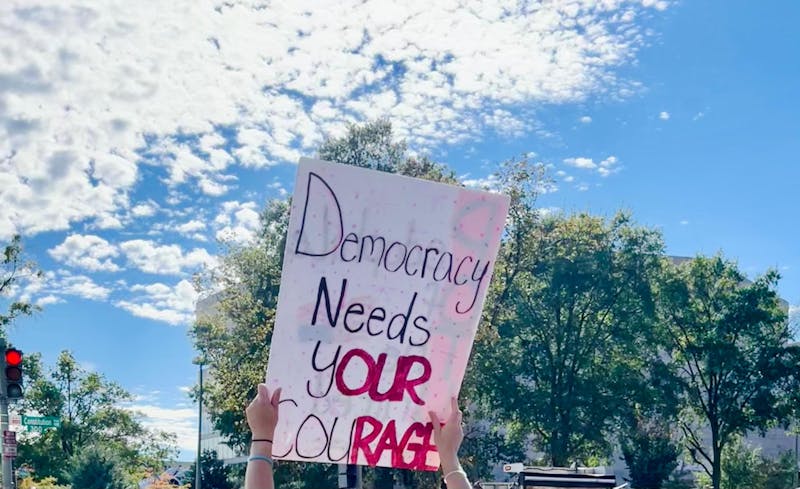On October 26, 2025, Deviana Dewi, a PhD candidate at Johns Hopkins University, raised concerns about the erosion of freedom, values, and equal opportunity in the United States. Her reflections stem from a deep appreciation for the American educational system, recognized globally for its role in fostering innovation and knowledge. Dewi highlights the historical significance of government investment in university research, dating back to a pivotal 1945 report by Vannevar Bush, which argued for federal support of basic research to ensure national security and promote economic growth.
The United States has long been celebrated as the “land of the free” and the “home of the brave.” Dewi emphasizes that at the heart of this identity is the principle of equal opportunity, enshrined in the Constitution. Yet, she perceives a troubling trend where these values are increasingly compromised.
Linking Freedom and the Rule of Law
In her commentary, Dewi references the words of Pope Saint John Paul II, stating, “Freedom consists not in doing what we like, but in having the right to do what we ought.” She argues that true freedom is intertwined with the rule of law, which provides the framework for distinguishing right from wrong. Historical figures such as Theodore Roosevelt have echoed similar sentiments, asserting that no individual is above the law.
Dewi stresses that the law serves as a safeguard for the common good, enabling individuals to exercise their freedoms responsibly. She warns against any political leader who claims to operate above the law, as this undermines democracy. Her experiences in the United States have led her to believe that political discourse often devolves into partisanship, overshadowing efforts to seek truth and common values.
Concerns Over Policy Changes Affecting Opportunity
Dewi expresses particular alarm regarding recent proposals affecting skilled foreign workers, such as a potential $100,000 fee for H-1B visas and the American Tech Workforce Act, introduced by Congressman Jim Banks. These measures aim to prioritize American workers but raise fears of stifling the influx of global talent that has historically contributed to the U.S. economy.
She argues that such policies contradict the values of meritocracy and fairness that have defined the American job market. Since the introduction of the H-1B visa in 1990, many immigrants, including notable figures like Elon Musk, have significantly enhanced U.S. innovation and economic strength. Dewi warns that if these policies remain unchallenged, they may jeopardize America’s reputation as a welcoming environment for skilled professionals.
Dewi emphasizes the importance of advocacy, particularly for international students whose perspectives are often overlooked in policy discussions. She encourages individuals to engage with their elected representatives to voice their concerns. Drawing from her own experiences, she highlights the power of citizen engagement in shaping policy and ensuring that the voices of diverse populations are heard.
In a world where the ability to ignore political implications is often a privilege, Dewi calls for a renewed commitment to the values of justice and truth. As a witness of hope, she underscores the necessity of acting on knowledge to foster change.
As nations navigate complex socio-political landscapes, the future of equal opportunity in the United States will depend on the collective commitment to uphold the principles of freedom, justice, and integrity.







